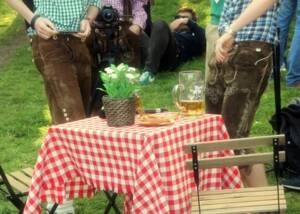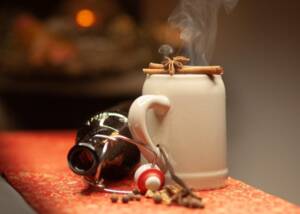On the trail of aroma - the coffee sniffers of Prussia
News News blog
There have always been snoopers... But did you know that there were also coffee snoopers or coffee sniffers?

Coffee consumption and coffee houses became more and more popular in Europe in the 17th and 18th centuries.
This was also true for Prussia - but after the Seven Years' War Prussia was almost broke. In addition, there was the threat of inflation. Since Frederick the Great had already experienced a permanent shortage of money during the war, the gold or silver value of Prussian coins had been steadily reduced by remelting. In addition, the critical free spirit that often prevailed in the coffee houses was a thorn in the side of the authorities.
So what could be done? The Old Fritz could only bring in the missing money through further taxes - just like today's politicians. In 1766, Frederick therefore brought in the notorious tax tenant de la Haye de Launay. The latter received an annual salary of 15,000 talers and was allowed to keep 5% of the taxes collected.
In order to protect Prussia's manufacturers and suppliers of malt (for malt coffee and for beer in the beverage industry) and to keep the money in the country, Frederick the Great had banned the import of coffee in the country in 1780. Anyone who still wanted to import coffee was subject to a high luxury tax on the popular beverage. Only state-owned roasting plants were allowed to roast coffee beans; state-owned coffee was sold in stamped tin cans for a thaler. In Hamburg, however, green (i.e., unroasted) coffee cost only four to five groschen. Smuggling of green coffee flourished.
And so the Prussian king appointed coffee sniffers - war-disabled French soldiers who roamed the streets in uniform, conducting body searches and house searches. Of course, they were immediately very unpopular with the population. However, the job as a coffee maker was popular among the invalids, because at that time soldiers who had returned home injured in the war were often forced to beg. As a coffee maker, on the other hand, one earned well and also received a bonus for success. And the success of the coffee makers was of course great, because of the coffee smell of the roasted beans.
After the death of Frederick II, the state coffee monopoly in Prussia was abolished in 1787. Now the coffee sniffers were unemployed and returned to France.










